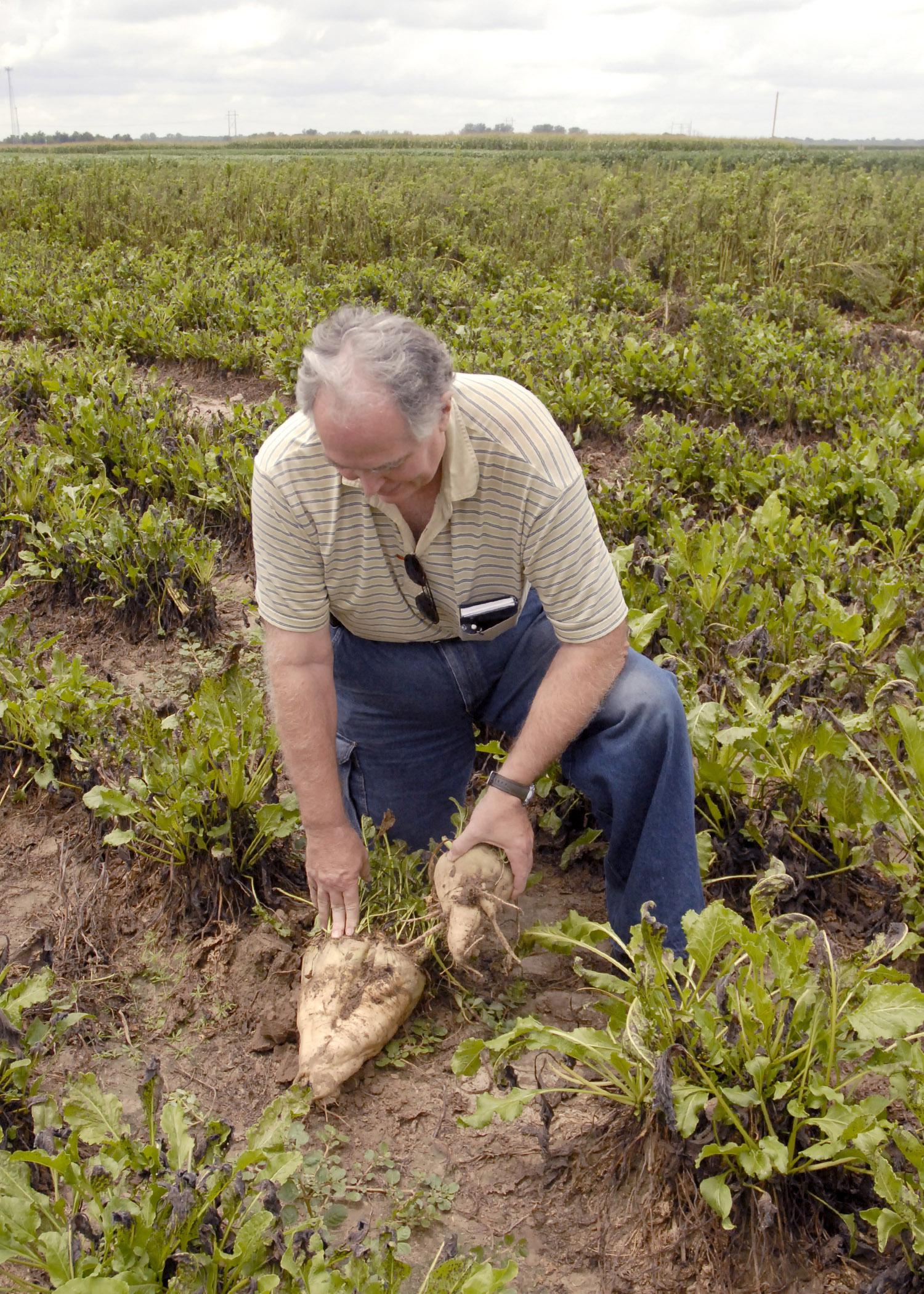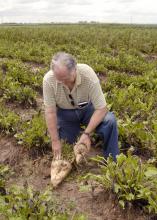Information Possibly Outdated
The information presented on this page was originally released on July 30, 2013. It may not be outdated, but please search our site for more current information. If you plan to quote or reference this information in a publication, please check with the Extension specialist or author before proceeding.
Beets in rotations may offer profitable options
STONEVILLE – Energy beets could be the answer to Mississippi farmers’ quest for off-season income and provide an alternative energy source for the nation’s expanding biofuels markets.
Mississippi State University researchers and Extension agents are examining the growth and profit potential for varieties of energy beets, a nonedible relative of sugarbeets used only in biofuel production.
“Because they are traditionally grown in much cooler climates, energy beets will grow best during Mississippi’s winter months as cover crops on fields between fall harvests and spring plantings,” said Wayne Ebelhar, a researcher with the Mississippi Agricultural and Forestry Experiment Station.
Researchers have grown energy beets in summer and winter months for three years at MSU’s Delta Research and Extension Center in Stoneville to examine their performance. Ebelhar said the first issue to resolve is whether energy beets will grow in Mississippi at all. The second issue is financial.
“I’m a farmer at heart,” he said. “I know what farmers want to know: What’s it going to cost me, and what am I going to make?”
The 33-year veteran researcher said he has been approached about every crop under the sun from a fertility standpoint.
“I see the potential in this crop, but we still need evidence the crop can produce a profit. We want measurable results,” he said.
Lester Stephens, agronomics crops agent with the Washington County Extension Service, said he is enlisting innovative farmers willing to try growing the crop.
“We need a handful of farmers to begin with 20-40 acres of energy beets to see how they perform agronomically and financially on Mississippi farms,” he said. “While they are not a cheap crop to grow – about $700 per acre – the breakeven point would be yields around 20 tons per acre. We think they could yield as much as 50 tons per acre, so the profit potential is there.”
Stephens said the beets require standard farming equipment until harvest time. Then growers will turn to commercial harvesters from other regions until they can determine the long-term profit potential of the crop in Mississippi and potentially make equipment investments.
Betaseed, which supplies more than 70 percent of the country’s sugarbeet seeds, is funding the research in hopes of attracting more growers.
“If we don’t get energy beets started here, the company will get them started somewhere else,” Stephens said.
Ryan Gompert, bioenergy technical leader with Betaseed, said researchers and farmers in Missouri, Arkansas, Kentucky, Louisiana, Alabama, Georgia and Florida are also having success growing energy beets. Most of the nation’s 1.2 million acres of sugarbeets are grown across the Northern Plains from Idaho to Michigan. This crop is the primary source of granulated sugar.
Gompert, who grew up on a Nebraska sugarbeet farm, admitted to being slightly skeptical initially about growing beets in the South.
“When we were driving around Mississippi in the winter, we saw a lot of dormant fields not growing anything,” he said. “After a few years of testing the beets’ performance, we are confident they will make an excellent winter crop, with minimal insect, disease and weed pressure during the cold months.”
For information about participating in energy beet trials, contact Stephens at 662-332-0524 or lesters@ext.msstate.edu or Ebelhar at 662-686-3247 or webelhar@drec.msstate.edu.





